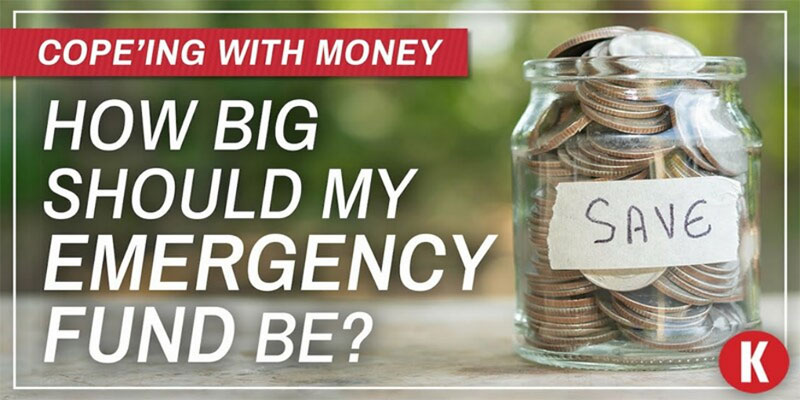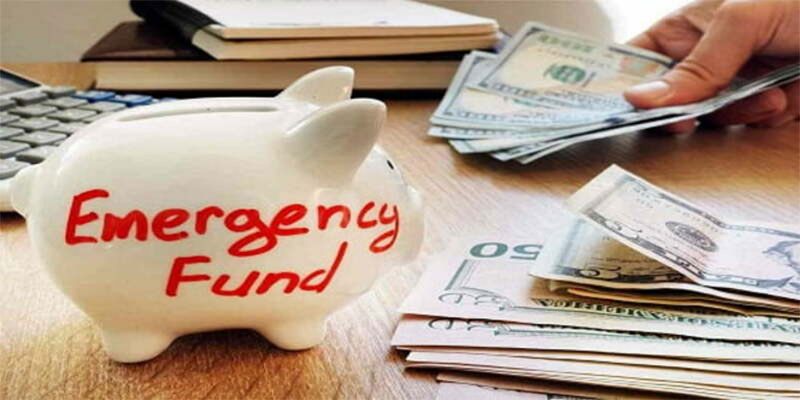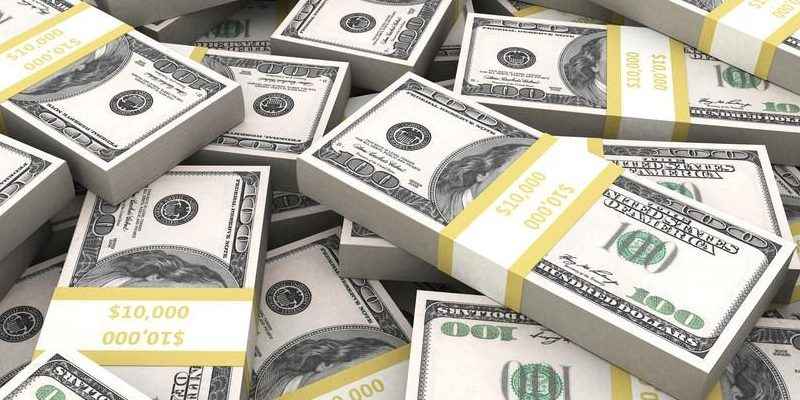What To Consider When Using An Emergency Fund In 2022
Jan 22, 2024 By Triston Martin
An "emergency fund" is a savings account for unexpected emergencies. An emergency fund is a savings account to cover large, unexpected costs associated with a medical emergency or substantial house repair. Typically, the assets in a rainy-day fund take the form of cash or other easily converted assets. This lessens the chances that you'll have to resort to risky forms of borrowing like using credit cards or a payday loan or compromise your financial future by dipping into your retirement savings. The idea is to have enough money saved to cover three to six months of spending in an emergency. However, that sum might overwhelm many individuals, discouraging even the most dedicated educator saver.
What Exactly Is An Emergency Fund?
When creating an emergency fund, it's crucial to consider potential financial hardships such as job loss, illness, or major expenses like home or vehicle repairs. This fund serves as a safety net during challenging times, including economic crises like the one in 2020.
To determine the ideal amount for your emergency fund, assess your income, expenses, and obligations. Financial experts often recommend saving three to six months' worth of living expenses. This amount can help cover small medical expenses or brief periods of unemployment. However, some suggest saving even more. Suze Orman, a renowned financial expert, recommends setting aside enough to cover at least eight months of expenses. This larger cushion provides added security in case of prolonged financial difficulties.
Why Do You Need An Emergency Fund?

Even a moderate financial setback may be difficult to recover from without reserves, and it might have long-lasting consequences if it leads to debt. According to the available data, those who have a harder time getting back on their feet financially after experiencing a financial shock also tend to have less money stashed up for such situations in the future. They could resort to using credit cards or taking out loans, which can lead to more difficult-to-repay debt. They might use retirement assets or other reserves to make up the difference.
How Much Money Do You Need From The Emergency Fund?
what is an emergency fund? An emergency fund is important, but the amount you should set aside is situational. Consider the types and amounts of the most frequent unexpected costs you've encountered. You may use this to determine how much money you want to put away. When your income fluctuates from week to month or month, it might be tough to feel motivated to save money. But even a little sum might provide peace of mind regarding your finances. If you're looking for a way (or ways) to save money, you'll find several good options below.
How Can You Create An Emergency Fund?
It's possible to begin saving in several ways. These plans may address a wide variety of scenarios, such as when one has a low savings rate or when one's salary fluctuates often. While it's possible to employ all these, the simplest methods to start saving are controlling your cash flow or putting aside a percentage of your tax return.
Where Should You Use An Emergency Fund?

Define the thresholds at which you should seek financial assistance in an emergency. Try to be consistent even if not every unplanned expenditure is an emergency. You might use it for any medical expense not covered by insurance, not just an emergency room visit. Having a savings cushion may protect you from falling into debt in the event of an unexpected expense. If you use a credit card or get a loan to cover the cost, the total amount you owe might be much more than the initial price.
Conclusion
No matter what you call it, having a savings cushion is crucial for everyone trying to get their financial house in order. A monetary buffer against financial adversities like losing your job, being evicted, or being in an accident; the professional life preserver that keeps you afloat through bad patches; this is what an emergency fund is. Separate from regular savings, an emergency fund may be used in a time of need. It's there to cushion the blows of life's inevitable curveballs. An emergency may take the shape of an unforeseen cost or a loss of income (due to, say, a job loss or the failure to get a bonus that had been anticipated). Everyone has their mental notion of what an "emergency" is. However, it would be best if you only spent your emergency savings in cases of genuine need.
-
 Investment Dec 05, 2023
Investment Dec 05, 2023How Do ETF Dividends Work?
Many exchange-traded funds (ETFs) generate income through the ownership of dividend-paying shares, whereas index-tracking and growth investing are the most prevalent uses of ETFs. Owners of ETFs receive their quarterly dividends, which are collected and dispersed. Dividends can either be paid out in cash or reinvested in the ETFs' underlying shares.
-
 Banking Oct 15, 2023
Banking Oct 15, 2023Apple Barclaycard Credit Card Review in 2023
Are you an Apple enthusiast and want to save big when purchasing Apple products? Apple Barclaycard is the perfect choice for many reasons. Read to find out.
-
 Investment Nov 30, 2023
Investment Nov 30, 2023Key Advantages Of The Approach To Take Into Consideration
Once upon a time, receiving income from Social Security plus a pension was sufficient to meet one's financial needs throughout retirement. Not nearly as much as it used to. Instead, most individuals finance their own post-work years by investing in various retirement plans, many of which provide tax cuts and other perks.
-
 Investment Feb 24, 2024
Investment Feb 24, 2024Keep the cash and wait for profitable chances
If the stock performance is not as good as you expected, you should empty the positions immediately, try not to find excuses for it. Always stay away from the stranded stocks, and invest your money in the strong leading stocks. Make your capital flow. Timing is very important for operating stocks.
